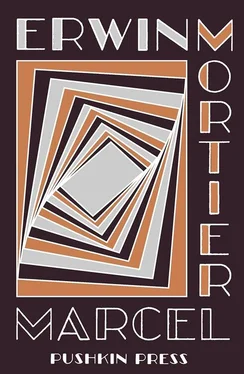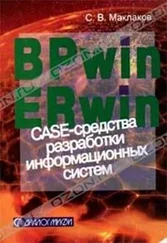Stella covered the grandmother’s head with an elasticated cap made of white nylon; at the top it was joined to a flaccid tube that was connected with the vacuum cleaner.
The grandmother raised her hands briefly to feel whether the cap was properly in place and gave a little nod. Stella swaggered over to the vacuum cleaner and pressed the switch with a flourish, as if it were a new type of rocket she was launching.
The machine let out a roar. The nylon tube stiffened. The cap ballooned.
“Warm enough?” Stella shouted over the din. “Not too hot?”
The grandmother said no. She was like a cave painting, a prehistoric fertility goddess with a ceremonial headdress.
The vacuum cleaner roared non-stop for the next quarter of an hour. The grandmother’s head emerged from the dryer steaming like a freshly baked cake. Stella pulled out the rollers, dragged a hairbrush through the stiff curls, and misted the sculpted tresses in enough hairspray to glue the flies to the ceiling.
“Remember, now,” the grandmother admonished, “you must mind your manners. No more than two biscuits — if we are offered any, that is. Or just one piece of cake. And don’t go butting in when the grown-ups are talking. Understand?”
“OK!”
“OK, OK … why don’t you just say ‘yes’. All these newfangled words. What’s wrong with Flemish anyway? People even say ‘sorry’ nowadays, as if they’re English. Sorry indeed. I used to have a dog called Sorry.”
“Yes Grandma.”
She went off to put on her smartest outfit, for which she had chosen the material and cut with the greatest care. Needless to say it was less ostentatious than her creation for Miss Veegaete, which was lying in the parcel on the chest.
*
Miss Veegaete lived at the end of the village in an unassuming brick house on a street corner. On one side it adjoined the school playground, on the other there was a drive with linden trees, a green tunnel that led to the gates of the castle.
“Well now, so it’s quite finished, is it?” trilled Miss Veegaete, seeing the parcel when she answered the door.
Miss Veegaete’s house did not have a hall, which always struck me as odd. A house without a hall was too eager, somehow, and there was an unseemly intimacy about it. Looking past Miss Veegaete’s ample shoulders you could see straight into her living room. The wallpaper was patterned with clouds of lilies and foliage bursting forth from curvaceous urns, which seemed intent on drawing the eye away from the framed still lifes with game. Fancy china, charming pendules, weather houses, almanacs and shepherdesses of fine biscuit porcelain cluttered every surface in sight. The whole mass of bric-a-brac was a twinkling avalanche gradually encroaching on the backs of the heavily patterned settees. Next to the piano stood a spindly wrought iron birdcage, from which a pair of parakeets raised a neurotic outcry at the intrusion.
Something moved in the background, and it was only then that I noticed Miss Veegaete’s brother. He was lounging on one of the settees watching television.
“Afternoon, afternoon,” he mumbled in a nasal voice, without taking his eyes off the screen.
“Our Norbert and his telly,” said Miss Veegaete. “It’s cycle racing from morning till night in this house.”
“It’s the Tour de France,” Norbert protested. “I can’t miss that.”
“I watch it myself, now and then,” said the grandmother. “Not for the sport, really, but because the scenery is so pretty sometimes. The French certainly know how to attract tourists.”
Miss Veegaete took the parcel from the grandmother, laid it down on a chair and fumbled with the wrapping.
“Oh my dear Andrea,” she cried, pulling the dress up by the shoulders and holding it at arms’ length. “How very nice it looks! I’ll put it on later, but let’s have a little treat first. Our Louise has been baking.”
At that very moment Louise, Miss Veegaete’s elder sister, kicked the scullery door open and came in bearing an impressive pastry construction. It was a tall cylinder with icing on top sprinkled with chopped hazelnuts, and it seemed to me nigh on impossible that she could have made it herself. She made me think of a tree which had started out with the potential for shooting up tall and slender but which had since, being confined between two rocks, lost all sense of direction. Just above her hips her spine canted forward at an alarming angle, then arched back up to the shoulders, where it lurched forward again.
Louise seemed about to collapse on top of the table, cake and all. The cups shivered in their saucers.
“Ah, a proper millefeuille ,” the grandmother said reverently. “You need a lot of patience for that sort of pastry. I seldom do it. All that rolling out, folding over, rolling again. Not my cup of tea.”
“Actually,” Louise squeaked, “I love keeping busy in my little kitchen.”
Her voice box had been invaded by a frightened bird which had clipped its own wings. “And little Linda here has been a great help.”
I had failed to notice that Louise had not emerged from the scullery alone. Little Linda skipped across the tiles and around the table. She halted right under my nose. A wisp of a girl; fey, fair-haired, almost translucent. Her lace-trimmed frock looked as if it was made of spun sugar.
“ Dans ma pochette j’ai beaucoup d’argent Italien ,” little Linda shrilled. She threw me a saccharine smile, unaware that her tongue was sticking out. Her front teeth were missing.
“My niece,” explained Miss Veegaete, brimming with emotion.
“Her Papa and Maman are on holiday, which is why little Linda has come to stay with us. The country air will do her good. She often comes to take a cure chez nous campagnards , don’t you ma petite ?”
Little Linda was too busy radiating self-satisfaction to reply.
The grandmother nudged me to shake hands with her.
I did not move a muscle.
Little Linda tapped my left shoulder with her forefinger and giggled with her tongue hanging out, “ Enchantée, campagnard !”
“They’re ever so quick to learn, these modern youngsters,” Miss Veegaete said, laughing.
“Hullo,” I said gruffly.
Little Linda sauntered back to the table.
*
The millefeuille turned out to be a horrendously frustrating delicacy that crumbled into nothing under my fork. Fortunately Louise had spread a generous filling of crème au beurre halfway down the layers of flaky pastry.
Little Linda sat on a chair wedged in between her two aunts. She stared in front of her with a self-possessed air, not deigning to look at her plate.
“ Tu n’aimes pas ?” Miss Veegaete inquired anxiously. They conversed almost inaudibly, in little staccato squeaks. From somewhere in their heads they transmitted thought waves, which only they could receive, not I.
“ Non ,” mewed little Linda. She pouted, putting her hands on her stomach.
Silently Miss Veegaete reached for little Linda’s plate and tipped the slice of cake onto her own plate.
“Not yet six years old and already a real Bruxelloise , that child,” said Louise with thinly concealed disapproval. “Airs and graces à volonté .”
“She’s a bundle of nerves, poor lamb,” Miss Veegaete said quietly, so that little Linda would not hear. “Things are a bit strained over there.”
“I knew from the start,” said Louise. “That woman, with all her tricks, she’s not right for our Antoine. He likes the country. Drives the poor chap up the wall, being stuck in that flat in Brussels.”
“Damn …” said Miss Veegaete’s brother.
The television rumbled and choked as though fighting down a sneezing fit. The screen filled with wavy stripes.
Читать дальше












